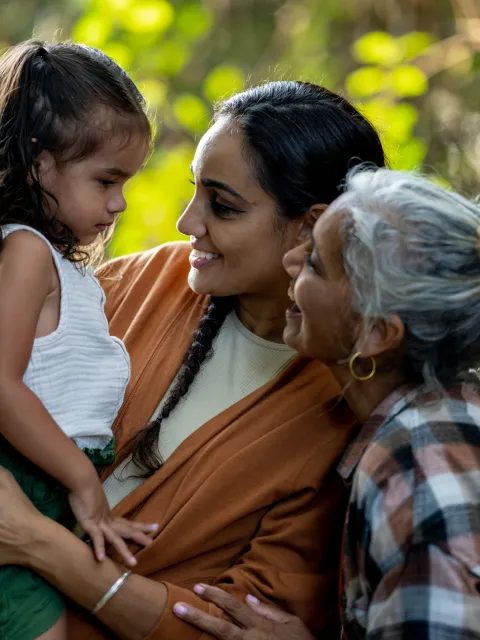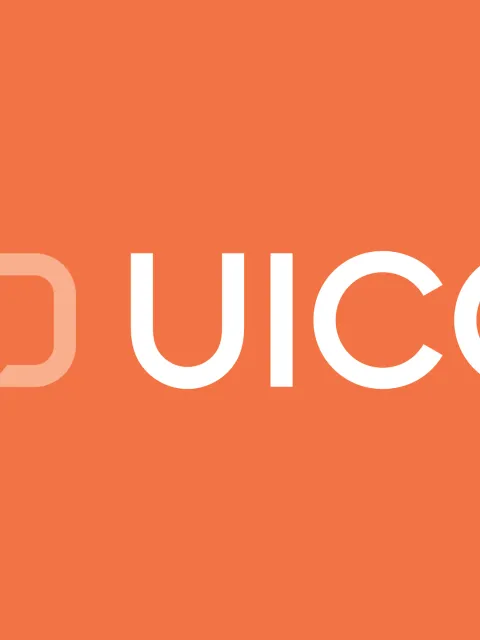A brand new look for the McCabe Centre for law & cancer
One of our Strategic Partners, the McCabe Centre for Law & Cancer, based in Australia has unveiled its new brand and website. Director, Jonathan Liberman, tells us what this means for McCabe .

Why has the McCabe Centre for Law & Cancer undergone a brand refresh?
McCabe Centre's new
brandmark
We started the McCabe Centre in 2012 with an idea of what we wanted to do and who we wanted to be. While we had big ambitions, our work and our impact have expanded way beyond what we imagined. We’ve developed a strong identity and clear ambitions for our ongoing development as set out in our Strategic Plan, and we want our brand to reflect this.
In working on our brand, we identified the attributes that we and our key partners felt best captured our identity: innovative, rigorous, trusted, practical, optimistic and dynamic.
And we identified the pillars of our work:
Empowerment: We build the capability of individuals, organisations and governments to use law as an effective tool to prevent and control cancer and NCDs.
Building Knowledge, Inspiring Action: We use deep technical research to produce world-class thinking; spurring practical action to face cancer and NCDs head-on.
Fostering Collaboration: We bring together the brightest and most passionate minds from all over the world to impact the prevention and control of cancer and NCDs.
Our new branding aims to communicate this.
Johnathan Liberman, Director, McCabe Centre for Law & Cancer
Why is it important to have a centre dedicated to law and cancer?
Because if we’re going to make the progress we want to make in cancer around the world, we need to fully harness the power of law, and we need to bring people together to do this.
Law is relevant to every part of cancer prevention and control – from primary prevention to screening and detection, diagnosis, treatment and care, and the research and data management that underlies all of this. Law is an incredibly powerful tool when used well.
A centre that is dedicated to harnessing the power of law to make progress in cancer – one that works closely with governments, intergovernmental organisations, civil society organisations, academic institutions and researchers – is an invaluable global resource.
How do you advance law to fight cancer?
First, it’s about showing what law can do and then how to make it happen – whether it’s tobacco plain packaging and graphic health warnings; mandatory consumer information about unhealthy foods; restricting the availability of alcohol; protecting the rights of people with cancer; providing for access to appropriate treatment and care, or allowing for essential cancer research to be done.
Turning this knowledge into action involves building the skills of others – whether in government, in intergovernmental organisations, or in civil society. It means supporting and empowering them to harness the power of law in a way that works in their setting, recognising the differences in country priorities and between legal systems, cultures, and capabilities.
This also means recognising and addressing the inequalities that exist both within and between countries, across socioeconomic status, ethnicity, sex, age, abilities, education, occupation, sexuality and geographic location. In the words of the Sustainable Development Goals, we must advance law to ensure we ‘leave no one behind’.
What has this achieved?
Legal and regulatory change can take a long time, and it is always the result of many different forces and factors. We see our role as being about supporting and empowering such change, making an important contribution in collaboration with our partners.
Through our Training Programs, which are primarily supported by the Australian Department of Foreign Affairs and Trade and the Australian Department of Health, we have now trained over 170 government lawyers and policymakers from 65 low- and middle-income countries.
Through our Training Program, we’ve contributed to the development of laws and regulations, and the successful defence of laws, in multiple countries across Asia, the Pacific, Africa and Latin America.
One example is tobacco plain packaging laws, both the development and implementation of these laws, and their defence against lawsuits by the tobacco industry. A total of 16 countries have now adopted tobacco plain packaging, numerous others are progressing it, and we expect many more to follow.
We’ve been uniquely placed to support tobacco plain packaging, through our learning from the experience of the Australian Government, which was the first to introduce tobacco plain packaging, and through the willingness of the Australian Government to share its experience with other countries through our Training Programs.
We’re proud that we’ve worked with 15 out of the 16 countries that have adopted tobacco plain packaging and several of the countries currently progressing it. We could think about this as 423 million people around the world being protected by stronger laws, and another 300 million on track to be protected. Taking one country as an example, Thailand – the first country in the Asia region to do so – that’s 69 million people who are now better protected.
What’s next for the McCabe Centre?
We’re very excited by what lies ahead for us. We’ll continue to expand our reach and amplify our impact through our Training Programs, particularly through launching our first Alumni Engagement Strategy for our growing Alumni Network. The Strategy will further empower our alumni to achieve change in their countries and become national, regional and global leaders.
We’ll continue to work closely with UICC, looking at how we can best add value for its member organisations. Among other things, look out for us at the 2020 World Cancer Congress in Oman, and the World Cancer Congresses to follow!
And the new global agenda on Universal Health Coverage – reflected in the Political Declaration adopted by the UN General Assembly in September – offers a host of new opportunities that we look forward to capitalising on.
Together, we can advance law to fight cancer so our vision of a world that is free from preventable cancer – and where people affected by cancer have equitable access to treatment and care, becomes our shared reality.
Last update
Friday 28 May 2021
